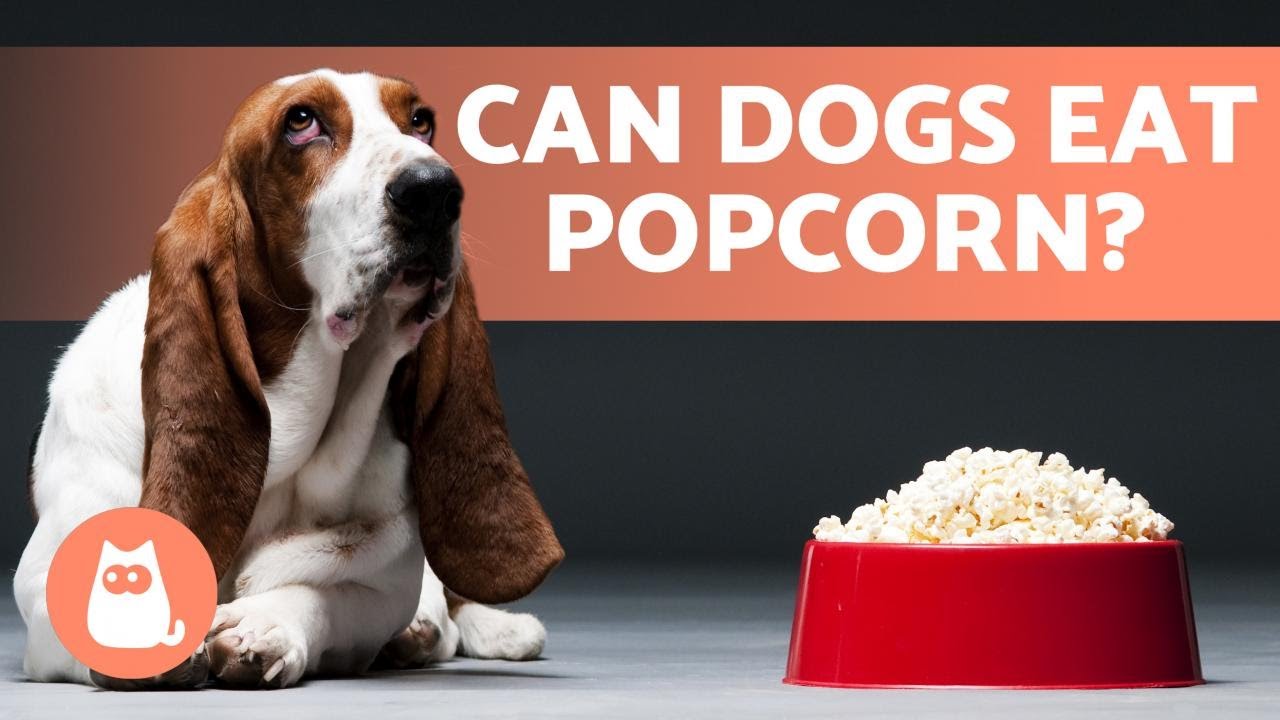Can Dogs Eat Popcorn? Safe Snacking Tips for Your Furry Friend
Discover if dogs can safely enjoy popcorn. Learn about its benefits and risks, safe serving tips, and healthier alternatives for your pup. Always consult a vet first!
We’ve all been there – enjoying a movie night with a big bowl of popcorn when our furry friend gives us those irresistible puppy eyes. But can dogs eat popcorn? It’s a question that’s popped up for many pet owners, and we’re here to unravel this kernelly conundrum.
While plain, air-popped popcorn isn’t toxic to dogs, it’s not exactly a nutritional powerhouse for our canine companions. Sure, it contains some minerals like magnesium and zinc, but these benefits are minimal compared to a well-balanced dog diet. We’ll explore the potential risks and benefits of sharing this popular snack with your pup, and provide guidance on safer alternatives to keep your movie nights both fun and pet-friendly.
Can Dogs Eat Popcorn?
Dogs can eat plain, air-popped popcorn in moderation. But, it’s crucial to understand the potential benefits and risks before sharing this snack with your furry friend.
Nutritional Benefits for Dogs
Popcorn offers minimal nutritional value for dogs. It contains small amounts of fiber, which can aid digestion when consumed in moderation. Popcorn also provides trace amounts of minerals like magnesium and zinc. Antioxidants present in popcorn may help combat free radicals in dogs’ bodies, potentially reducing oxidative stress. But, these benefits are negligible compared to a balanced dog diet. It’s important to note that popcorn should never replace regular dog food, which is specially formulated to meet canines’ nutritional needs.
Potential Risks and Concerns
Feeding popcorn to dogs comes with several risks. Unpopped or partially popped kernels pose a choking hazard, especially for small breeds. These kernels can also cause dental damage or intestinal blockages if swallowed. Seasonings and additives commonly found on popcorn, such as butter, salt, and sugar, are harmful to dogs. Excessive salt intake can lead to dehydration or sodium ion poisoning, while butter and oil may cause pancreatitis. Flavored popcorn varieties often contain artificial ingredients that can be toxic to dogs. Also, overconsumption of popcorn can contribute to weight gain and obesity in dogs, leading to various health issues. It’s essential to monitor portion sizes and avoid sharing popcorn as a regular treat.
Types of Popcorn to Avoid
While plain, air-popped popcorn can be safe for dogs in moderation, certain types of popcorn pose important risks to their health. It’s crucial to understand which varieties to avoid to keep our canine companions safe.
Buttered and Seasoned Popcorn
Buttered and seasoned popcorn is a no-go for dogs. Plain, air-popped popcorn may be safe in small amounts, but adding butter, salt, or other seasonings can be harmful. Butter can lead to stomach issues, obesity, or even pancreatitis in dogs. Excessive salt intake can result in salt poisoning, causing symptoms like increased thirst, vomiting, and in severe cases, seizures. Seasonings containing garlic, onions, or chives are toxic to dogs and must be avoided entirely. These ingredients can cause digestive upset and more serious health problems. To keep our furry friends safe, it’s best to stick to plain, unseasoned popcorn if sharing at all.
Kettle Corn and Caramel Popcorn
Kettle corn and caramel popcorn are definitely off-limits for dogs. These sweet varieties contain high levels of sugar and often include additional preservatives that can be harmful to our canine companions. The excessive sugar content can lead to various digestive issues in dogs, including gas, stomach pain, diarrhea, and vomiting. Also, these types of popcorn may contain ingredients that are toxic to dogs, such as chocolate or xylitol, an artificial sweetener that’s extremely dangerous for canines. Even small amounts of these substances can cause severe health problems. To ensure our dogs’ safety, it’s best to keep all flavored popcorn, especially sweet varieties like kettle corn and caramel popcorn, out of their reach.

Safe Ways to Feed Popcorn to Dogs
While plain, air-popped popcorn can be safe for dogs in moderation, it’s crucial to follow exact guidelines to ensure your furry friend’s safety. Let’s explore the proper preparation methods and recommended serving sizes for feeding popcorn to dogs.
Proper Preparation Methods
To safely feed popcorn to dogs, follow these steps:
- Use an air popper: Invest in a kitchen appliance designed specifically for popping popcorn without oil.
- Remove unpopped kernels: Carefully sift through the popped corn to eliminate any unpopped or partially popped kernels.
- Avoid additives: Don’t add butter, salt, sugar, or any other seasonings to the popcorn.
- Cool before serving: Allow the popcorn to cool completely before offering it to your dog.
- Break into smaller pieces: For smaller dogs, break the popcorn into bite-sized pieces to prevent choking.
By following these preparation methods, you’ll minimize potential risks associated with feeding popcorn to your canine companion.
Recommended Serving Sizes
When offering popcorn to dogs, consider these serving size guidelines:
- Small dogs (under 20 lbs): 1-3 pieces of popcorn
- Medium dogs (20-50 lbs): 5-10 pieces of popcorn
- Large dogs (over 50 lbs): 10-20 pieces of popcorn
Remember, popcorn should only be an occasional treat, not a regular part of your dog’s diet. Treats, including popcorn, shouldn’t exceed 10% of your dog’s daily caloric intake. Always monitor your dog when introducing new foods and consult with your veterinarian if you have concerns about your dog’s diet or nutritional needs.
Health Considerations
When considering whether dogs can eat popcorn, it’s essential to understand the health implications. While plain, air-popped popcorn isn’t toxic to dogs, there are several factors to consider before sharing this snack with your furry friend.
Choking Hazards and Dental Issues
Popcorn poses important choking risks for dogs, particularly unpopped or partially popped kernels. These hard kernels can easily become lodged in a dog’s throat or airways, leading to potentially life-threatening situations. Also, kernels can get stuck between teeth, causing discomfort and potential dental issues. Larger pieces of popped corn may also be difficult for smaller dogs to chew properly, increasing the risk of choking. To minimize these risks, we recommend removing all unpopped kernels and breaking larger pieces into smaller, manageable sizes before offering popcorn to your dog.
Corn Allergies in Dogs
Corn allergies are relatively common in dogs, and popcorn can trigger adverse reactions in sensitive individuals. Symptoms of corn allergies in dogs may include skin irritations, itching, gastrointestinal upset, and in severe cases, difficulty breathing. If you’re introducing popcorn to your dog for the first time, start with a small amount and monitor their behavior closely. Signs of an allergic reaction may include excessive scratching, vomiting, diarrhea, or changes in behavior. If you notice any of these symptoms, discontinue feeding popcorn immediately and consult your veterinarian. For dogs with known corn allergies, it’s best to avoid popcorn altogether and opt for corn-free treats and food options to ensure their health and well-being.
Alternatives to Popcorn for Dogs
While plain popcorn can be a safe occasional treat for dogs, there are healthier and safer alternatives that provide more nutritional benefits. We’ve compiled a list of dog-friendly snacks that can be used as substitutes for popcorn during movie nights or as everyday treats:
- Carrots:
- Low in calories and high in fiber
- Rich in vitamin A for eye health
- Crunchy texture helps clean teeth
2. Apple slices:
- Good source of vitamins A and C
- Contain antioxidants
- Remove seeds and core before serving
3. Blueberries:
- Packed with antioxidants
- Low in calories
- Can be served fresh or frozen
4. Green beans:
- Low in calories and high in fiber
- Good source of vitamins C and K
- Can be served raw or steamed
5. Sweet potato chunks:
- Rich in vitamins A, B6, and C
- High in fiber
- Serve cooked and plain, without seasoning
6. Pumpkin:
- High in fiber and low in calories
- Rich in vitamins A and C
- Can aid in digestion
7. Cucumber slices:
- Low in calories and high in water content
- Good for hydration
- Crunchy texture dogs enjoy
8. Zucchini:
- Low in calories and high in fiber
- Good source of vitamins C and B6
- Can be served raw or cooked
9. Watermelon:
- High water content for hydration
- Contains vitamins A and C
- Remove seeds before serving
10. Plain, air-popped rice cakes:
- Low in calories
- Crunchy texture similar to popcorn
- Break into small pieces for easy consumption
When offering these alternatives:
- Introduce new foods gradually
- Serve in moderation as part of a balanced diet
- Remove any seeds, pits, or cores
- Cut into appropriate sizes to prevent choking
- Avoid adding salt, sugar, or seasonings
| Treat | Calories per serving | Key nutrients |
|---|---|---|
| Carrots (1 medium) | 25 | Vitamin A, Fiber |
| Apple slices (1/4 cup) | 15 | Vitamins A and C |
| Blueberries (1/4 cup) | 20 | Antioxidants |
| Green beans (1/4 cup) | 10 | Vitamins C and K |
| Sweet potato (1/4 cup cooked) | 40 | Vitamins A, B6, C |
These alternatives provide a range of nutritional benefits while satisfying your dog’s desire for treats. They’re safer options compared to popcorn, especially for dogs with corn allergies or sensitivities. Always consult with your veterinarian before introducing new foods into your dog’s diet, particularly if your pet has exact health concerns or dietary restrictions.
Conclusion
While plain air-popped popcorn isn’t toxic to dogs it’s not an ideal treat. We’ve explored the potential risks and proper serving methods. Remember that popcorn should only be an occasional snack given in moderation. For dogs with corn allergies or those at risk of choking it’s best to avoid popcorn entirely. Instead we recommend healthier alternatives like carrots or blueberries that offer more nutritional benefits. Always consult your vet before introducing new foods to your dog’s diet to ensure their health and safety.

